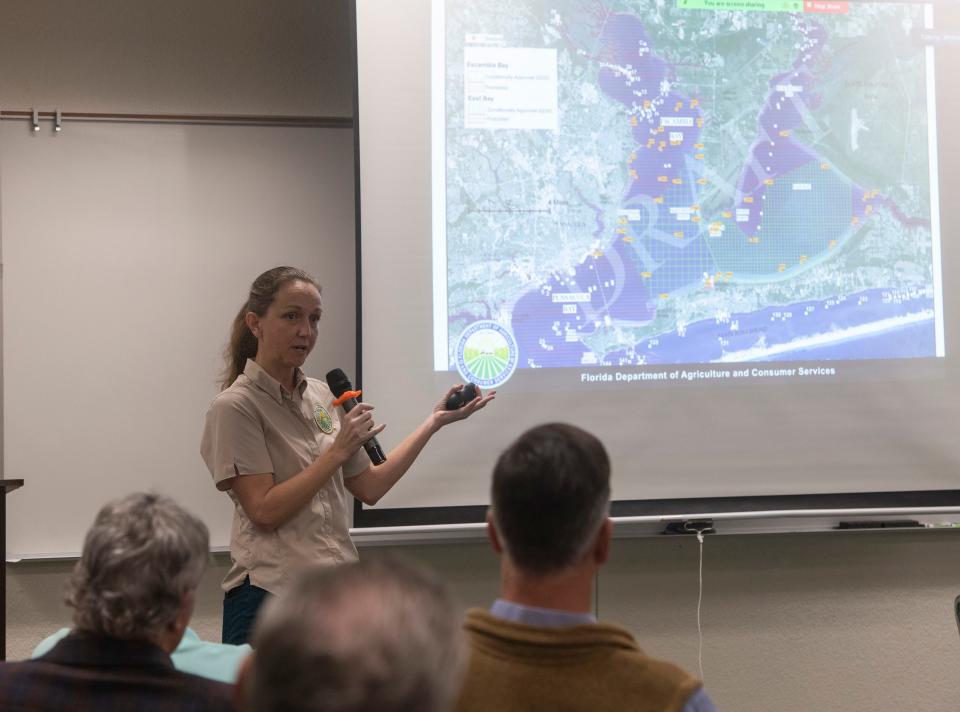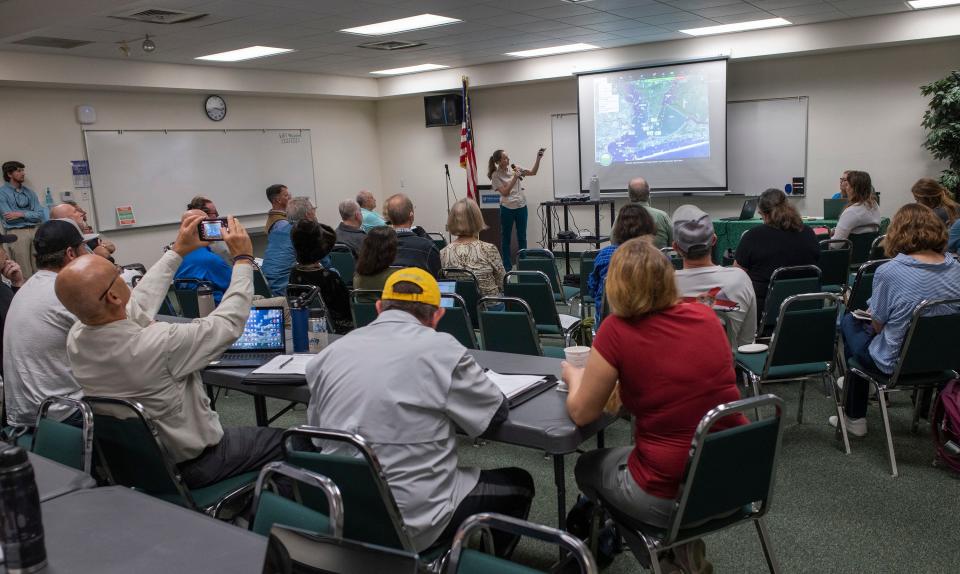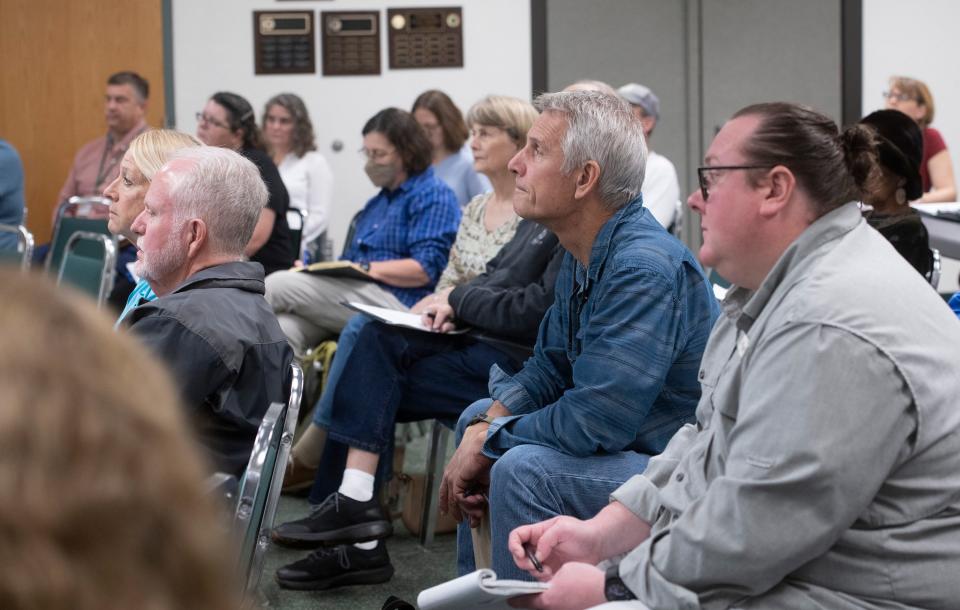The death of Pensacola's oyster industry is greatly exaggerated, but the risk is real
Santa Rosa County environmental activist Jerry Couey has a saying he likes to use when addressing a crowd of people.
"We have met the enemy, and it is us."
As about 60 local stakeholders convened Tuesday to find solutions to halt the decline of the oyster harvesting profession in Pensacola Bay, his words rang true. At every turn in the discussion another manmade negative impact on the bay system took some blame for the current state of Northwest Florida's local water bodies.

Get to know the PPBEP:Estuary program could be powerful guardian for Pensacola waters — with a bit more time
Cutting back:New maps greatly reduce boundaries of Pensacola Bay system oyster harvest
A meeting set up by the Pensacola and Perdido Bays Estuary Program on Tuesday called "Oyster Round Table: Solutions for Pensacola Bay" was set up following a state rule change implemented Jan. 18 that drastically reduced the size of the area within the Pensacola Bay System in which oysters can be farmed and harvested.
Biologist Matt Davis reported that oyster populations are struggling across the board, but that in Pensacola Bay, East Bay, Escambia Bay and Mid Bay their fate seems particularly dire.
"Oysters across the state are in a pretty decreasing state," he said. "It's not entirely surprising, and it's not entirely great ... Apalachicola is not doing that well, but about 10 times better than Pensacola."
Government officials, environmental experts and local activists spent half the day discussing the conversion of septic systems to sewer, sedimentation from development, preservation of trees, stormwater runoff and illicit dumping. Then three local oyster harvesters stepped in to talk about what they see is most severely damaging their business in today's market.
For starters, according to Thomas Derbes, the owner of Emerald Coast Oyster Company and head chef at the local restaurant The Well, bad press is everywhere.
"What I hear is 'I don't want to eat anything out of Pensacola Bay because it's polluted,'" he told the crowd.

Derbes reminded meeting attendees that some locations within Penscola Bay, Escambia Bay and East Bay are still open to the harvesting of oysters and still producing.
He agreed that ongoing water testing, steps taken to make developers adhere to regulations aimed at preventing pollutants from entering the waterway and converting septic systems to sewer are needed, but he offered a short term solution as well.
Derbes said he believed local oyster farmers could succeed if officials didn't rely on 20 year old maps to decide where the best location to try to successfully raise the mollusks were. Sedimentation has so impacted the floors in the bays that the muck beneath the water is an obstacle to raising oysters.
"We need to figure out some way to make an oyster bed off the bottom, so it has no contact with the sediment," Derbes said. "There are places conducive to oyster growth, but if you keep putting oyster reefs where the old maps tell you it's conducive to oyster growth, it's like planting a palm tree in New York. You'll have a palm tree for a summer and then it dies."
Brandon Smith, like Derbes an oyster harvester, also lamented having to so often hear "is it safe to eat?"
"We're lacking positive reinforcement," he said.

While Smith acknowledged that stormwater runoff is "huge" as a contributor to contaminating the bays, he said sedimentation "is the reason we don't have oyster beds."
Several of the local officials in attendance agreed with the assessment that stormwater is a major cause of pollution in Escambia and Santa Rosa County waterways. One said that just 10% of the stormwater entering local bay systems have been treated in some manner and suggested classifying stormwater discharge as a "point source pollutant."
Matt Posner, director of the Pensacola and Perdido Bays Estuary Program, said the organization would review the comments and proposals raised during the meeting and seek solutions that can be put into action.
This article originally appeared on Pensacola News Journal: Pensacola area oyster farmers offer solutions to declining harvests

